Are you traveling in Japan and wondering how to properly eat soba noodles?
You’re not alone – many first-time visitors are curious (and a bit nervous) about slurping, dipping sauces, and unique Japanese food etiquette.
This guide will show you how to enjoy soba like a local – and even better, how to make your own soba in a hands-on workshop right here in Osaka!
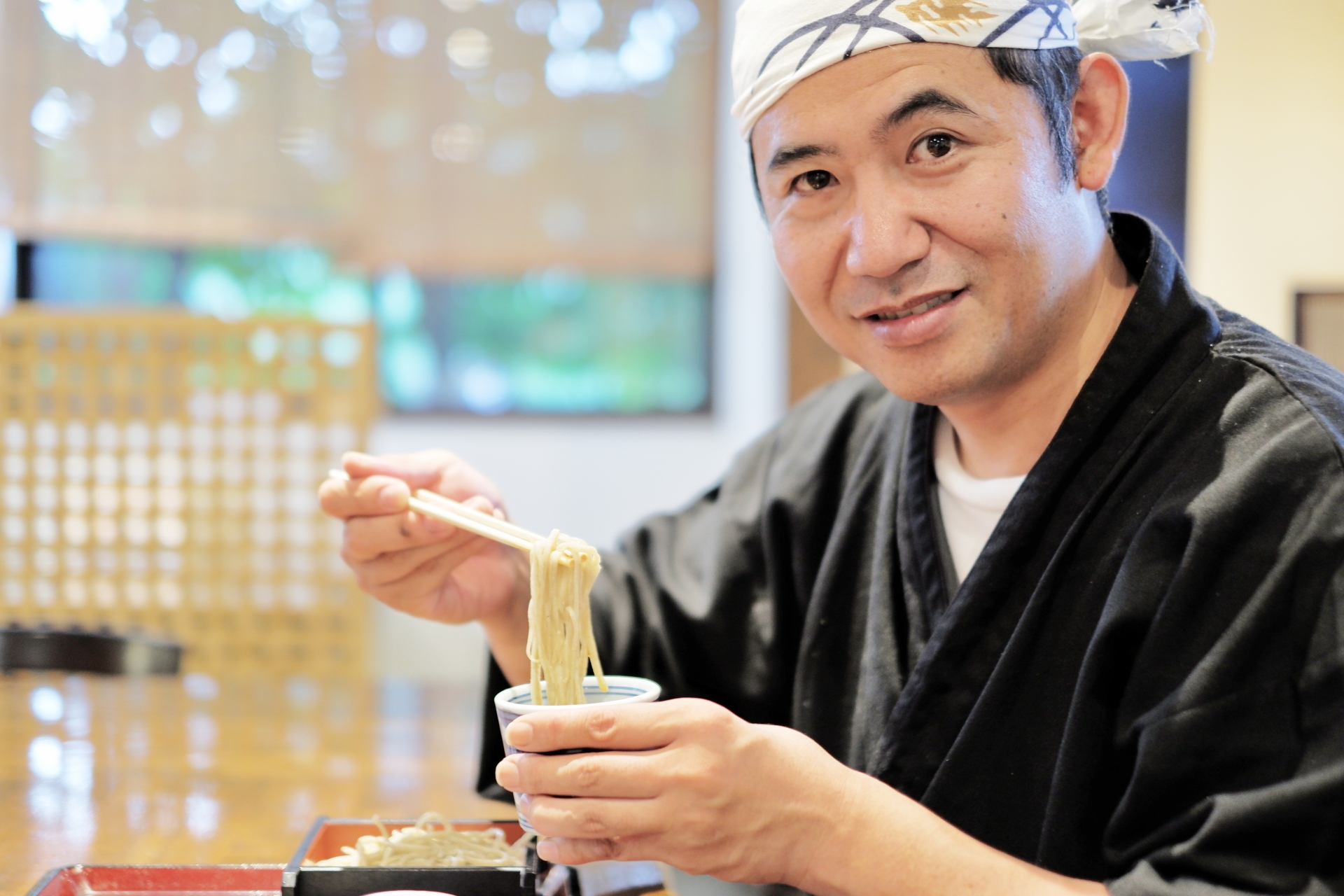
🥢 What Is Soba?
Soba are traditional Japanese noodles made from buckwheat flour. They’re light, slightly nutty in flavor, and often served either cold with dipping sauce or hot in soup.
- A healthy choice (low in calories, high in fiber)
- Often gluten-free (but always check!)
- A deeply rooted part of Japanese food culture
You’ll find soba in casual restaurants, fancy shops, and even train stations!
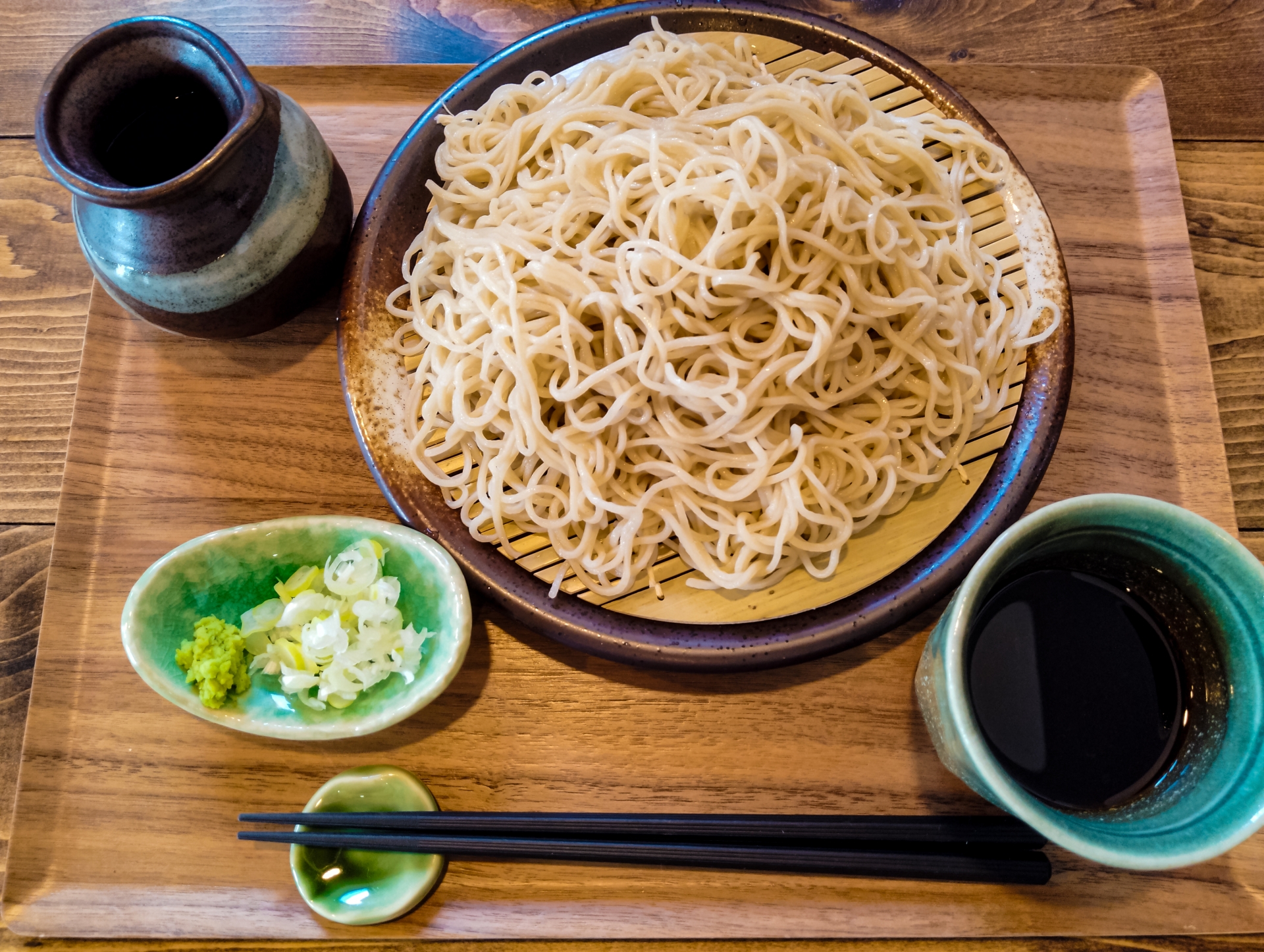
🍜 How to Eat Soba: The Local Way
✅ Step-by-Step Guide (for cold soba)
- Take a small portion of noodles with your chopsticks.
- Dip the noodles lightly into the tsuyu (dipping sauce).
Don’t soak them fully – just the tips! - Slurp them into your mouth with a confident “ZUZU” sound.
🎌 In Japan, slurping is polite – it shows that you’re enjoying the meal!
🌶️ What Are the Toppings and Condiments?
Your soba may come with:
- Green onions (negi)
- Wasabi
- Grated daikon radish
- Seaweed (nori)
Mix a small amount into your dipping sauce or place on your noodles. There’s no strict rule, but less is more – the delicate flavor of soba should come through.
🍲 What About Hot Soba?
Hot soba (kake soba) comes in a bowl of broth.
- Eat like you would with ramen – slurp away!
- It’s OK to drink the broth directly from the bowl.
- Add toppings gradually to adjust the flavor.
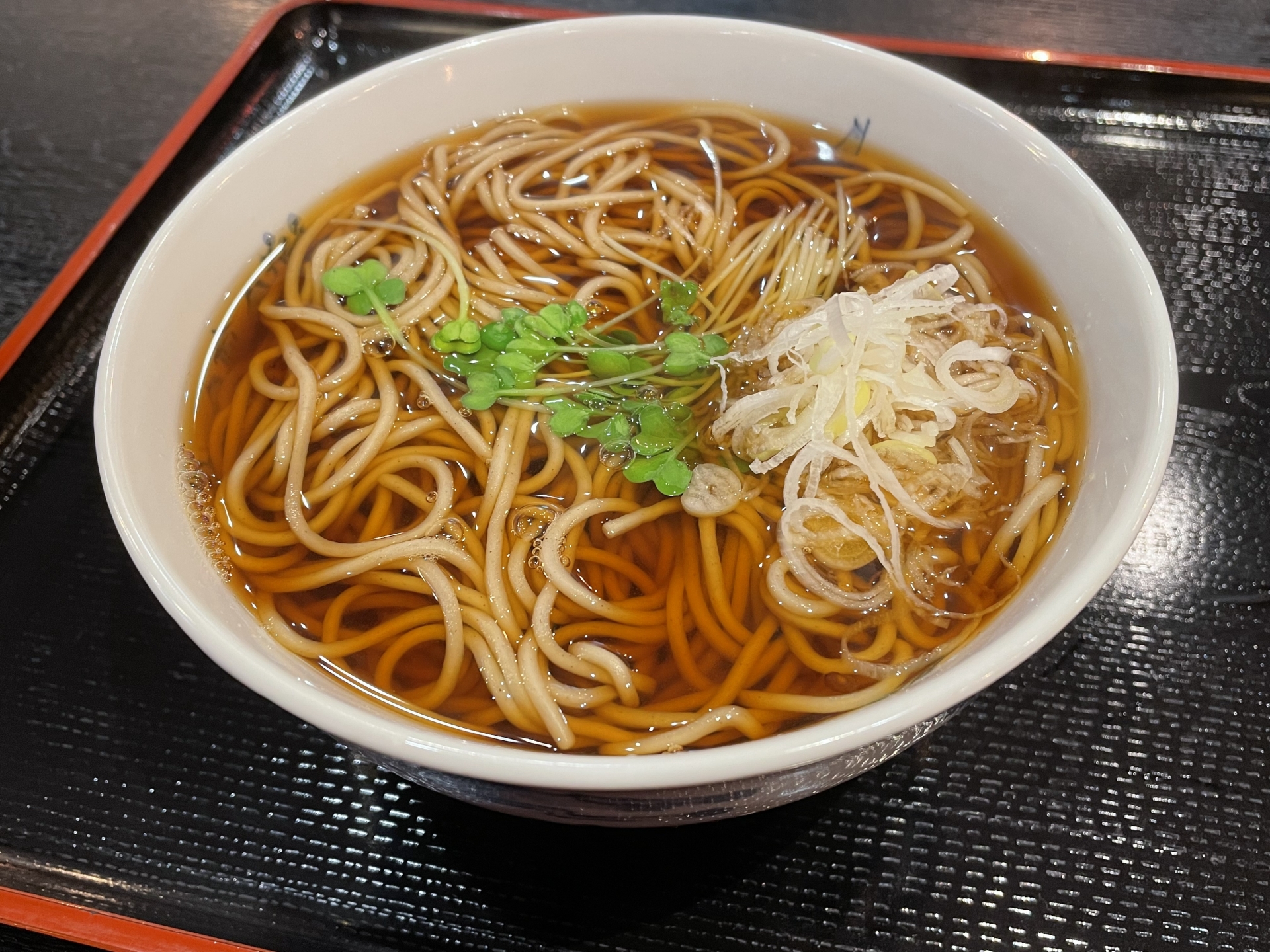
🫖 Wait… What Is Sobayu?
After finishing cold soba, your server may bring a small teapot with cloudy hot water.
This is sobayu – the water in which the soba was boiled.
How to enjoy it:
- Pour sobayu into your remaining dipping sauce.
- Drink it like a warm soup!
🧘 It’s comforting, nutritious, and a lovely way to end the meal.
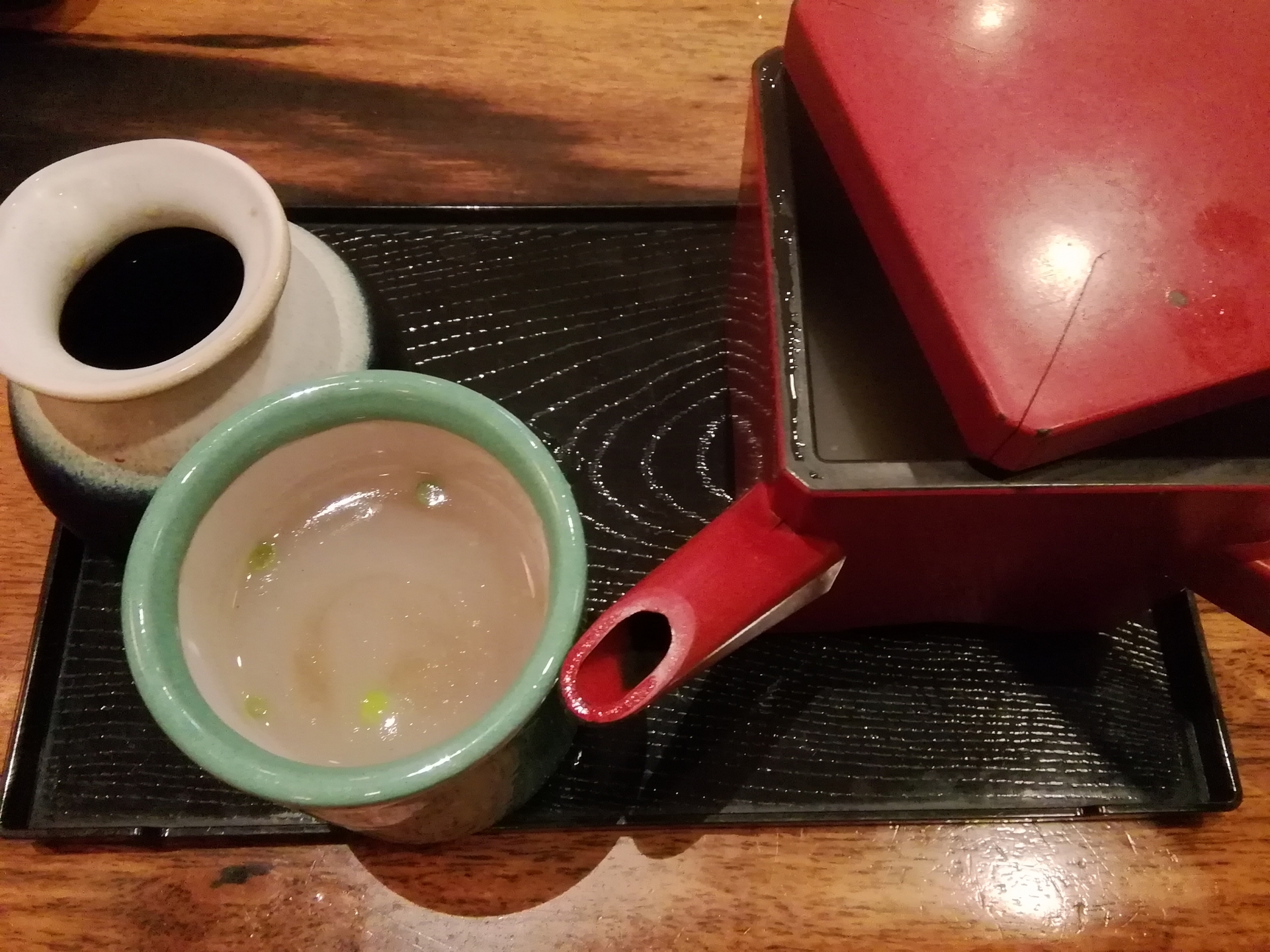
❌ Common Mistakes to Avoid
| Mistake | Why Not |
|---|---|
| Dipping the whole noodle deep into sauce | It becomes too salty |
| Trying to eat silently | You’re missing the point – slurp proudly! |
| Adding too much wasabi | It kills the flavor |
👘 Want to Do More Than Just Eat?✨ Try a Soba-Making Class in Osaka!
Why just eat soba when you can make it yourself?
Join our hands-on soba-making workshop in Osaka – a fun and unforgettable way to experience Japanese food culture.
- 👐 Make soba from scratch with your own hands
- 🎥 Get photos and videos of your experience
- 🍜 Enjoy your handmade noodles with dipping sauce
- 🌍 English-speaking staff available
- 📍 Located in central Osaka – easy access from Umeda and Namba
- 👨👩👧 Small groups only – max. 3 people
- ⏱ 2-hour class | 💴 8,800 yen per person
💬 “I never thought making noodles could be this fun. It was the highlight of our trip!”

📚 Bonus: Quick Soba Vocabulary
| Japanese | English |
|---|---|
| Soba | Buckwheat noodles |
| Tsuyu | Dipping sauce |
| Yakumi | Condiments |
| Sobayu | Hot soba water |
| Zaru Soba | Cold soba with seaweed |
| Kake Soba | Hot soba in broth |
📌 Summary
Eating soba is simple, fun, and delicious – once you know the basics.
Slurp with confidence, enjoy the natural flavors, and don’t forget to try sobayu!
And if you want to take your soba journey one step further, join our soba-making class in Osaka. It’s not just a meal – it’s a cultural memory you’ll never forget.
👉 Click here to join our soba-making class in Osaka
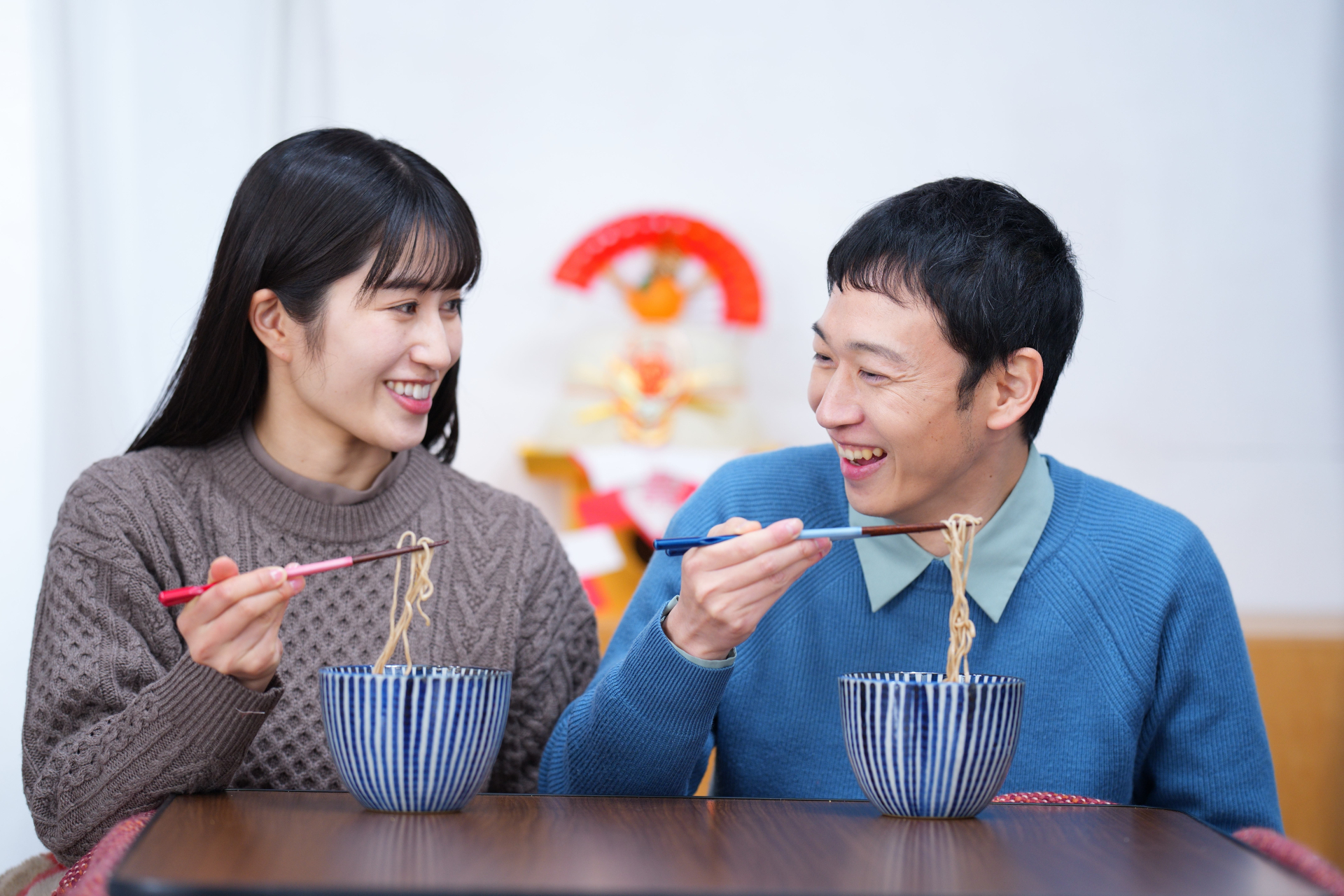
🙋 FAQ
Q: Can I eat soba if I’m vegetarian?
A: Yes, but ask if the soup or sauce contains dashi (fish stock).
Q: Is soba gluten-free?
A: Pure soba (juwari soba) is gluten-free, but many noodles are mixed with wheat. Always check the label or ask.
Q: Is it rude to slurp?
A: In Japan, slurping is not only OK – it’s encouraged!
Would you like to experience making soba noodles in Japan?
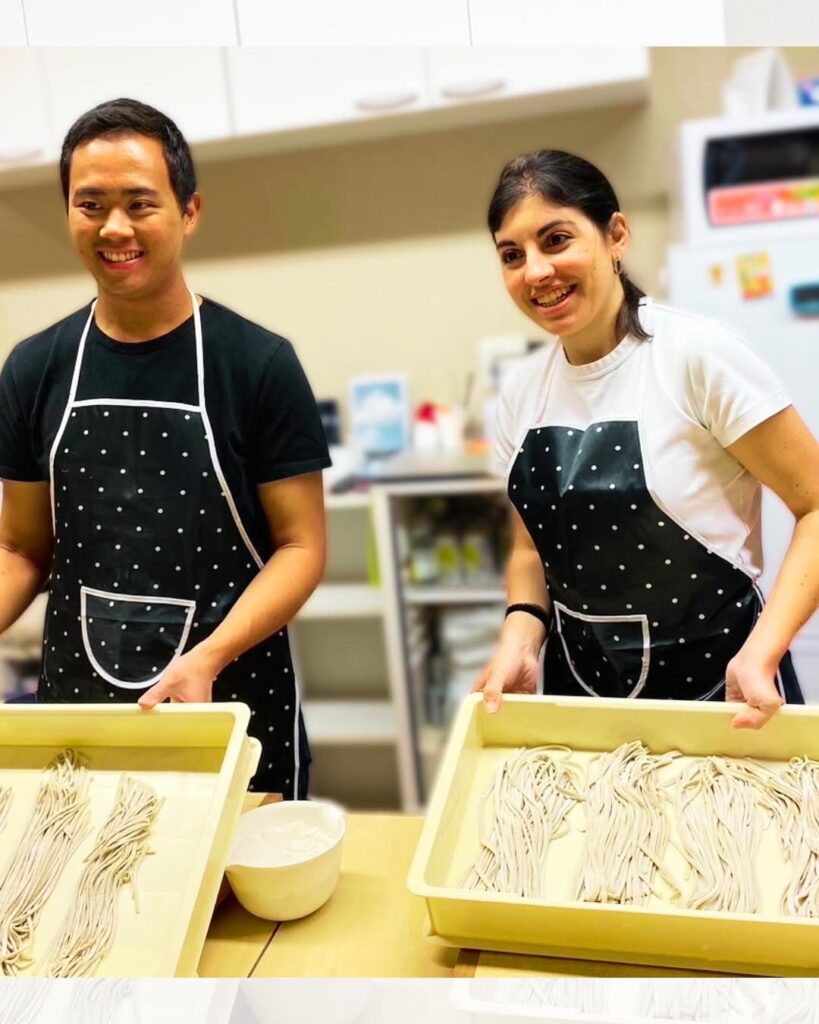
We are a Japanese soba noodle making experience class. We also have plans for travelers coming to Japan. Please visit our website here.
TSUKUSHI Osaka Japan




コメント